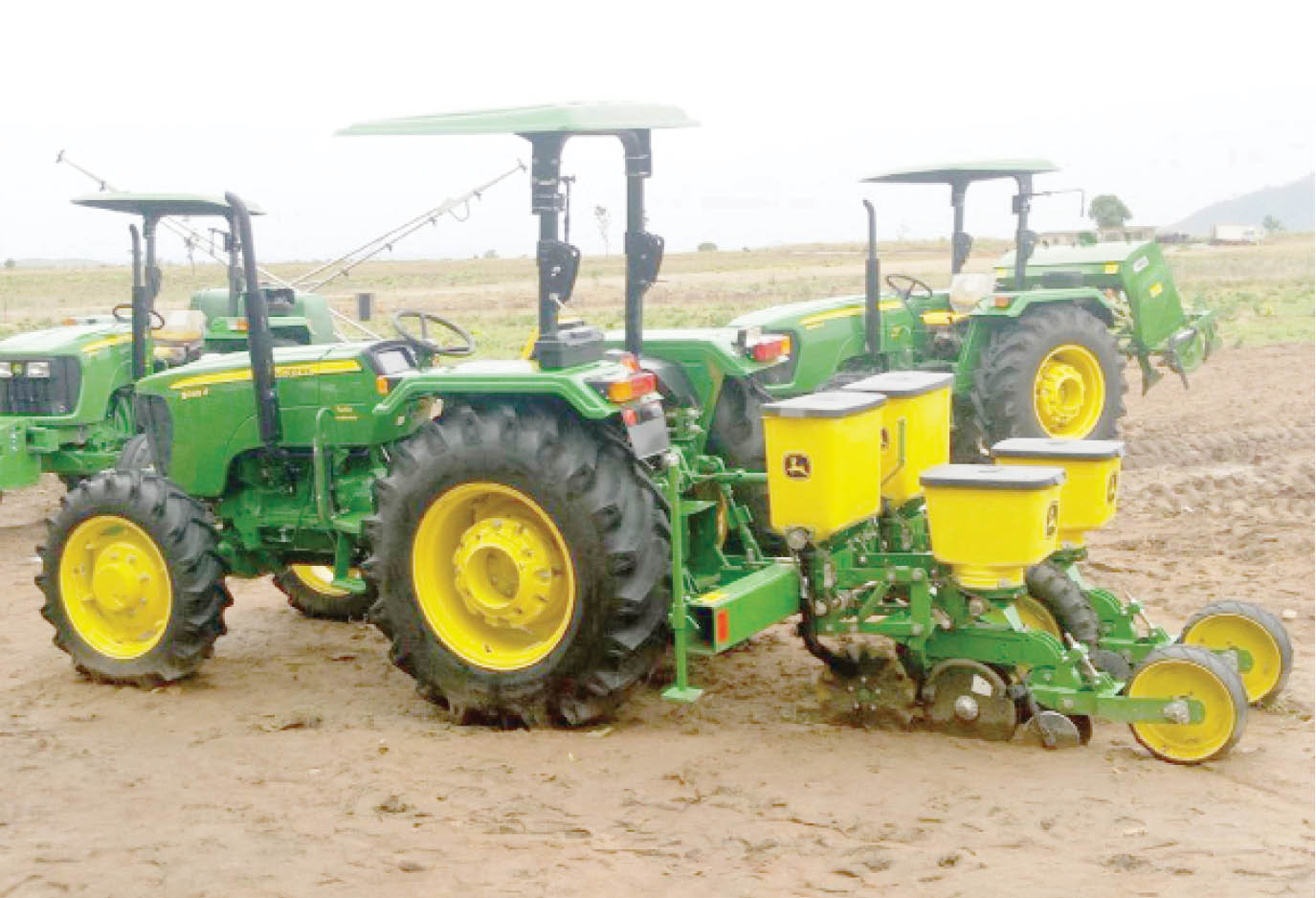How cost of inputs, production makes farming unprofitable
One of the hardest challenges confronting farmers since the beginning of this year’s wet season is the rising cost of inputs. This is also one of the factors that trigger increase in the prices of food in the market. Many farmers who spoke with our reporter complained that the prices of fertiliser, agrochemicals and seeds […]

Tractor is one of the inputs that is going beyond farmers’ reach at the moment
One of the hardest challenges confronting farmers since the beginning of this year’s wet season is the rising cost of inputs.
This is also one of the factors that trigger increase in the prices of food in the market.
Many farmers who spoke with our reporter complained that the prices of fertiliser, agrochemicals and seeds have gone up significantly within a short period, which affected their plan for the wet season expansion.
The brand of fertiliser commonly used by smallholder farmers, like Urea from Indorama, Notore and the new entrant into the market, Dangote, are sold between N11,000 and N14,000 per 50kg bag, depending on where you are buying the products across major markets in the country. Reports from areas affected by insecurity show that a bag goes for up to N18,000 because the supply is usually few in such areas.
For the NPK brands, the 20-10-10 formation introduced under the Presidential Fertilizer Initiative is sold above N8,000 per 25kg bag. This is higher above the last season price of N5, 000 and N7,000 while NPK 15-15-15 is sold between N15,000 and N20,000, depending on your location, market and availability.
Other special blends of fertiliser used in greenhouses production or vegetables, like monopotassium phosphate fertilizer – 25kg (soluble fertiliser) cost between N22,000 and N32,000, depending on location and availability.
The monopotassium phosphate fertiliser is a highly pure phosphate, which dissolves rapidly and is recommended during root and shoot development in early stages, up till flowering and early fruit set.
Apart from the inputs, the cost of hiring labour and tractor has also gone up, leaving farmers with difficult choices that affect their productivity.
Many crop farmers rely on daily labour to execute basic operations. In some cases, farmers make provision to feed their workers.
Findings show that a farmer pays between N1,000 and N2,000 daily, depending on the type and nature of the job, while working hours range between 8am and 4pm.
Mr Musa Yohana, a rice farmer, said the cost of hiring labour sometimes left farmers with nothing.
“On my three hectares of early rice, I engaged 14 people, paying them N1,500 daily for three days. This is just for cutting the rice. I had to also pay eight women N1,000 daily for two days to gather the rice in one place for threshing.
“I also engaged more 12 people with N1,500 daily for two and half days to do the threshing. After that you talk of transportation. I paid N500 per bag from the farm to the house.
“What I gave you is just for the harvest. I have not mentioned the cost of fertiliser, tractor, herbicide and seed. If you add your own labour and time to it, you are running at a loss. I have not even added the cost of feeding these people while they worked in the farm because this is the tradition here. People think farmers are making millions, let them go into it and see,” he said.
The cost of improved certified seed has also gone up from N400 per kg to N1,000 for rice, maize and other grains. Oil seeds like sesame, soybeans and groundnut cost between N1,200 and N1,500 per kg, depending on your location.
For this wet season, a lot of factors, such as insecurity, high cost of fertiliser, seed and labour have affected production and farmers are calling for immediate preparation for dry season.
Mr Ezekiel Imam advised the federal government to always plan for two cropping seasons: rain-fed and irrigation, massively.
“The plan for dry season farming should start immediately because with insecurity, lack of sufficient fertiliser and flood, we may likely experience food supply shortage,” he said.
On livestock, many farmers, particularly those into poultry, have continued to grapple with cost of inputs, with many saying they do not make profit but struggling to keep the business going.
The cost of feeds and supplements of top brands like Ultima Feed, New Hope, Chikun, Top feed, Animal care, Hybrid, Vital and other livestock feeds have gone up from N2,700 to between N6,200 and N8,400 per 25kg, depending on the brand, availability and location.
“You know chicken and other animals are living things, so you must feed them well, otherwise you can’t get any good result. But the reality is that the prices of their feeds do not make keeping them profitable again.
“You will also look at their drugs and other things. Those who are still in it are doing so because farming has become part of them and they cannot leave it. Maybe the big players who have the money have different experiences. But to be honest, small people like us hardly make anything that is worth the effort,” a smallholder poultry farmer, Austin Ben said.
Many smallholder farmers who spoke with Daily Trust on Sunday said they had reduced the number of birds they kept because of the cost of feed.
Experts say with the rising cost of production in the sector, government needs to focus its intervention there. This will help keep many jobs and create new ones, as well as reduce the burden of rising food inflation in the country.
